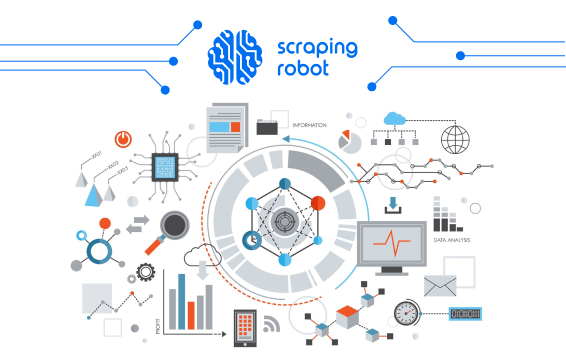Data-as-a-Service: Outsourcing Your Data Processes

Table of Contents
Whenever a new need or want arises in a market, so also do providers who solve that want or need and the need for data is no exception. One of the more important needs of humans that have taken on greater importance in the past decade, almost as important as the internet, is data. The need for data has gone beyond just another aspect of the online world to become an integral part of operating competitively in any modern business scene. And it is for this need that Data-as-a-Service providers have come onto the scene.
Traditionally, most business organizations had to build their own data collection and management setup from scratch, maintain it, and upgrade it when necessary. This involved purchasing data management software, integrating it with your collection methods, and building the infrastructure required to interpret the data. This was a very costly endeavor and for a long time was responsible for the slow advance of the data revolution. However, with the advent of cloud services and the rapid proliferation of APIs across the internet, it became possible to create a multi-platform cloud infrastructure for data management and usage that could potentially serve multiple companies across multiple niches with their data needs while hosting the infrastructure in a single location. Essentially, it became possible to share data among even the most disparate and separated software and hardware systems from a single location. Some astute business people took advantage of this possibility to create a business model that we now know as Data-as-a-Service.
The concept of Data-as-a-Service is one of the latest in a long line of “as-a-service” technology and its advent has totally transformed the way organizations collect, store and access data. In this article, we’ll take a closer look at what Data-as-a-Service is and the benefits of this cloud innovation to the data industry.
What Is Data-as-a-Service?

Data-as-a-Service is a data management solution based on the concept of delivering data storage, integration, processing, and analytics functionalities via the cloud. The entire concept stems from a desire to limit risk and offload the burden of data management to a third-party cloud-based provider. As we said earlier, companies traditionally had to build, manage and maintain their own data management solution. The major problem with this model, however, was that the more complex data became, the higher the costs of maintaining and expanding the data management systems. Every time there is a significant increase in the volume of data being handled, the system has to be overhauled for both storage and processing capacities. However, cloud solutions provide an all-encompassing solution to this.
With a DaaS cloud computing solution, companies can house and access their mission-critical data from central storage that also offers integration and analytics service. This makes it possible and more efficient to employ a data-driven strategy that bases business decisions on data insights. Within the DaaS environment, data can be shared with users regardless of organizational, geographical, or platform barriers with the help of APIs that can serve as a bridge between disparate software systems.
Data-as-a-Service is a cloud solution that is slowly gaining strength and more widespread attention in the cloud technology industry. According to research carried out by Grand View Research Inc., the market size for big data as a service will be worth $51.9 billion by 2025. The slow adoption of the DaaS model is mostly due to the fact that older cloud computing technologies were designed to handle application hosting and SaaS model without the capacity for handling and processing large volumes of data. However, newer cloud technologies are being developed with low-cost storage and higher bandwidth, making it possible for more companies to adopt the Data-as-a-Service model and shift their data management processes to the cloud.
Benefits of Big data as a Service

Adopting a cloud-first strategy is beneficial to your business in a lot of ways and Data-as-a-Service mimics most of these benefits with a few more specific benefits. Here are some of them:
- Higher data quality: With the data service controlling access to the data and handling updates, the data quality becomes much more improved. Since all the data is controlled and accessed through a single point, the data quality is uniform across-board and an update to one part of the data will affect the entire storage. There is also a lower chance of improper entry and categorization of data.
- Cost-effectiveness: One of the major motivations behind employing any cloud solution is lower costs. By migrating your entire data management process to the cloud, there is no need to maintain and manage multiple software for processing, integration, and analytics. With cloud solutions offering data science as a service and data analytics as a service, your entire data management process can be consolidated into a single location. Also, you do not have to worry about building and maintaining any infrastructure or employing people specifically for the purpose of handling data. The DaaS service provider takes on all the costs and risks of building all the infrastructure and you just have to pay to use it. This reduces the cost of data collection, processing, and analysis, making it easier to employ data insights for your business. Also, providers can build the platform base on the cloud and outsource the presentation layer. This method of deployment makes it easier to modify the presentation layer and tailor it to specific use-cases.
- Agility: Within a DaaS platform, users can move quickly and switch between the collection, analysis, storage, and integration without having any knowledge of the underlying mechanisms of the platform. Also, with most DaaS providers basing their service on the Service-Oriented Architecture (SOA), there is a great deal of flexibility in effecting changes to data or the underlying structure for data presentation.
These are some of the major reasons driving the increasingly widespread adoption of Data-as-a-Service by businesses and organizations across-board for data management.
Disadvantages of Data-as-a-Service

Like everything in life, there are two sides to the Data-as-a-Service coin and while the flip side does not do much to detract from the benefits, you should take these few challenges into consideration and balance them against the needs and structure of your organization before making a decision on how to pursue the adoption of DaaS platforms.
- Security: This is one of the major concerns on the adoption of DaaS platforms. The more companies put their data in the hands of cloud platforms, the more security becomes a major issue. From the operations perspective, it is extremely beneficial to take this step but it leaves you in danger of having mission-critical data in the open where a simple data breach could see it in unfriendly hands.
- Compliance issues: With data being housed in the cloud, there may be compliance issues that come especially when data of a sensitive nature is involved, healthcare data for example. Since cloud providers are not geographically limited, there may be the issue of carrying location-bound data across borders or improper monitoring of said data. This issue is a delicate one and might require more than one type of solution but it one that must be solved for the widespread adoption of Data-as-a-Service to proceed.
- Reliability: By adopting a Data-as-a-Service provider for managing your data, you are essentially putting your entire data management process in the hands of someone else. This would not normally be a problem, but any slight problem with your providers’ systems will lead to you being unable to access your data. If you happen to be in a position where the data is vital to making a business decision, this can be a huge problem. However, downtimes are inevitable and most providers strive to inform their users beforehand to prevent situations like that.
- Privacy: When you host your data with a cloud provider hosting data streams from many other 0rganizations, privacy also becomes an issue. Seeing as most of the data being handled are mission-critical datasets that are of a sensitive nature, it is perfectly natural to be concerned about just how private your data is when it is transferred over networks and managed in the same solution alongside data from hundreds of other organizations.
The Future of Data Science as a Service

The future of the internet as a whole and data management, in particular, is headed towards comprehensive data management solutions that allow data to be collected, collated, processed, and integrated across the web from a single point. With the aid of APIs, Data-as-a-Service is the harbinger of this future and is essentially the first major acknowledgment of the need to turn data practices into business models.
However, Data-as-a-Service as it currently works offers a lot in the way of management, processing, and integration of data but does not say a lot about the collection of the data in the first place. A lot of businesses continue to struggle with the need to collect data in an organized and targeted format and while there are a few providers that sell pre-collected generic data to businesses, they do nothing about the need for custom data by businesses. And that is what we at Scraping Robot have chosen to focus on in our role as a Data-as-a-Service provider.
At Scraping Robot, we have developed cutting-edge web scraping software that takes over your data collection process and helps you reduce costs much, in the same way, as a generic DaaS provider. Combined with our API, you can easily integrate our web scraping software alongside your cloud storage solution and ferry data directly from its source on the internet to your cloud solution where it can be analyzed. Essentially, we have helped you complete the entire gamut of data operations and you can reliably relinquish your data collection needs to us so you can focus on putting the insights you get from the data we collect to valuable use.
Final Thoughts

Data-as-a-Service is the new kid on the cloud computing block and it is delivering fully on its promise. With more and more companies looking to the cloud for solutions to scaling their business technologically, there is the promise of more widespread adoption of a solution that takes over a mission-critical function like data management. And with Scraping Robot’s API, you can also outsource the collection of your data, focusing fully on managing other aspects of your business. Sounds good, doesn’t it?
The information contained within this article, including information posted by official staff, guest-submitted material, message board postings, or other third-party material is presented solely for the purposes of education and furtherance of the knowledge of the reader. All trademarks used in this publication are hereby acknowledged as the property of their respective owners.
